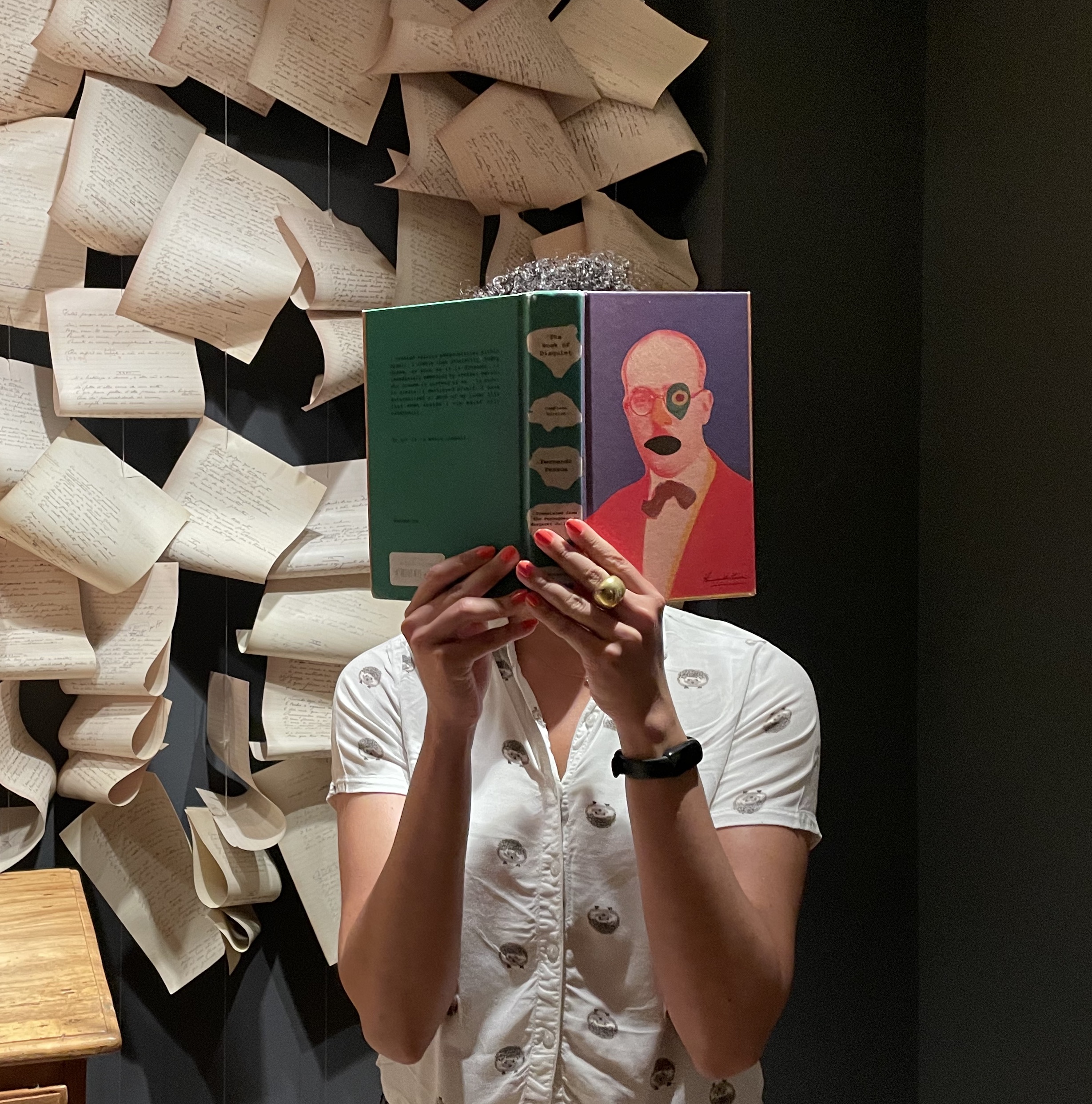By EVIE SHOCKLEY
These poems are republished from suddenly we by Evie Shockley, a guest at Amherst College’s eleventh annual literary festival. Register and see the full list of LitFest 2026 events here.

perched
i am black, comely,
a girl on the cusp of desire.
my dangling toes take the rest
the rest of my body refuses. spine upright,
my pose proposes anticipation. i poise
in copper-colored tension, intent on
manifesting my soul in the discouraging world.
under the rough eyes of others, i stiffen.
if i must be hard, it will be as a tree, alive
with change. inside me, a love of beauty rises
like sap, sprouts from my scalp
and stretches forth. i send out my song, an aria
blue and feathered, and grow toward it,
choirs bare, but soon to bud. i am
black and becoming.
—after alison saar’s blue bird
women’s voting rights at one hundred (but who’s counting?)
eenie meenie minie moe
catch a voter by her toe
if she hollers then you know
got yourself a real jane crow |
~ ~ ~
one vote is an opinion
with a quiet legal force ::
a barely audible beep
in the local traffic, & just
a plashless drop of mercury
in the national thermometer.
but a collectivity of votes
/a flock of votes, a pride of votes,
a murder of votes / can really
make some noise.
~ ~ ~
one vote begets another
if you make a habit of it.
my mother started taking me
to the polls with her when i
was seven :: small, thrilled
to step in the booth, pull
the drab curtain hush-shut
behind us, & flip the levers
beside each name she pointed
to, the Xs clicking into view.
there, she called the shots. |
~ ~ ~
rich gal, poor gal
hired girl, thief
teacher, journalist
vote your grief |
~ ~ ~
one vote’s as good as another
:: still, in 1913, illinois’s gentle
suffragists, hearing southern
women would resent spotting
mrs. ida b. wells-barnett amidst
white marchers, gently kicked
their sister to the curb. but when
the march kicked off, ida got
right into formation, as planned.
the tribune’s photo showed
her present & accounted for.
~ ~ ~
one vote can be hard to keep
an eye on :: but several / a
colony of votes / can’t scuttle
away unnoticed so easily. my
mother, veteran registrar for
our majority black election
district, once found—after
much searching—two bags
of ballots / a litter of votes /
stuffed in a janitorial closet. |
~ ~ ~
one-mississippi
two-mississippis |
~ ~ ~
one vote was all fannie lou
hamer wanted. in 1962, when
her constitutional right was
over forty years old, she tried
to register. all she got for her
trouble was literacy tested, poll
taxed, fired, evicted, & shot
at. a year of grassroots activism
nearly planted her mississippi
freedom democratic party
in the national convention.
~ ~ ~
one vote per eligible voter
was all stacey abrams needed.
she nearly won the georgia
governor’s race in 2018 :: lost by
50,000 / an unkindness of votes /
to the man whose job was purg
maintaining the voter rolls.
days later, she rolled out plans
for getting voters a fair fight.
it’s been two years—& counting. |
Excerpted from suddenly we by Evie Shockley. Copyright, © 2023 Evie Shockley. Reprinted with permission from Wesleyan University Press.
Evie Shockley thinks, creates and writes with her eye on a Black feminist horizon. Her books of poetry include Suddenly We (NAACP Image Award; National Book Award finalist), semiautomatic (Hurston/Wright Legacy Award; Pulitzer Prize finalist), and the new black (Hurston/Wright Legacy Award). Her literary criticism includes Renegade Poetics: Black Aesthetics and Formal Innovation in African American Poetry and numerous essays. Most recently, she is editor of the Norton Library edition of Harriet Jacobs’ Incidents in the Life of a Slave Girl. Among the honors for her body of work in poetry are the Academy Fellowship for Distinguished Poetic Achievement, the Shelley Memorial Award, the Lannan Literary Award for Poetry, the Holmes National Poetry Prize and the Stephen Henderson Award. Her joys include participating in poetry communities such as Cave Canem and collaborating with artists working in various media. Shockley is the Zora Neale Hurston Distinguished Professor of English at Rutgers University.











